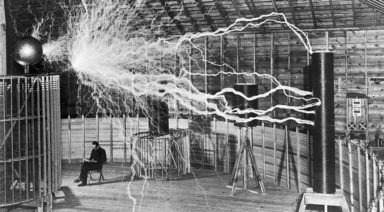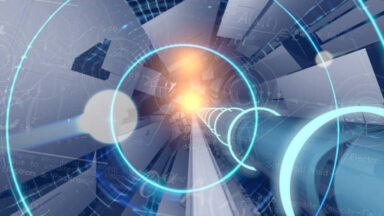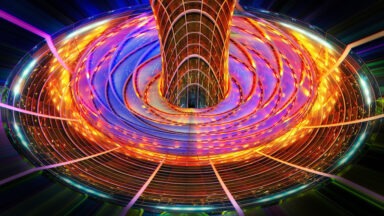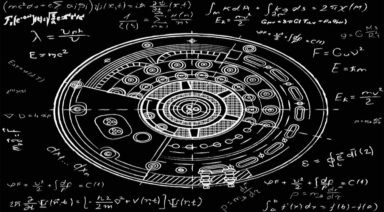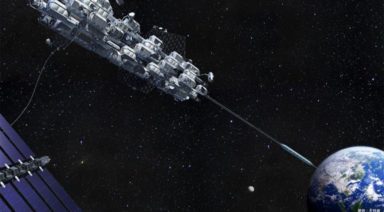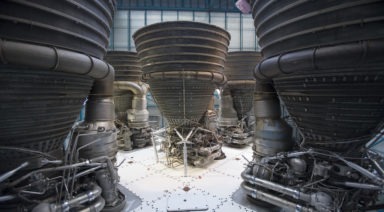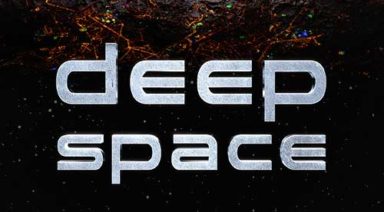Robots Are Learning and Speaking in Languages We Can’t Comprehend
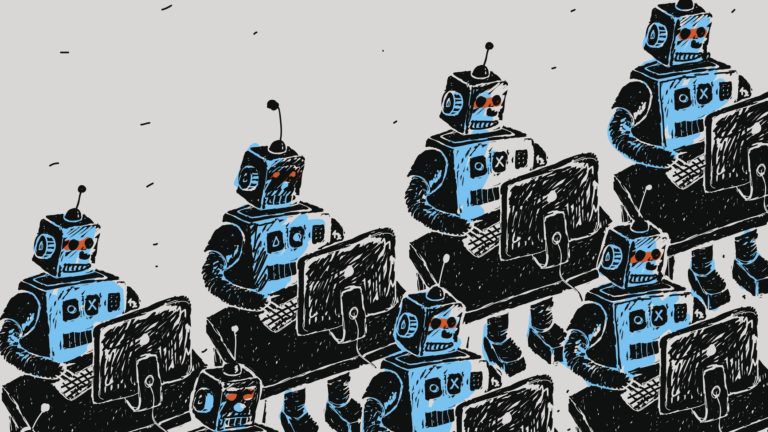
Siri and Alexa are convenient tools to help you find a good restaurant, start your favorite playlist, or tell you what the weather will be like tomorrow. Apple and Amazon will inevitably develop this technology to perform increasingly complicated tasks, making menial chores easier and integrating more A.I. into our lives. And that process is being expedited by algorithms that allow A.I. to teach itself and learn on its own iterations.
But when A.I. starts speaking in its own language and we can’t figure out how, or what it means, there’s really no precedent for dealing with it. Well, now that hypothetical has become reality and the premise of every dystopian, A.I. sci-fi flick is becoming increasingly relevant.
Google’s DeepMind AI TECHNOLOGY
Last year, Google’s AlphaGo algorithm beat the world’s best player in Go, a board game more complicated than chess and with more possible outcomes than there are atoms in the universe. And now it has advanced to the point where it can beat the top 50 Go players in the world simultaneously.
This rate of learning is unsettlingly fast and achieved by its ability to play against itself millions of times in a very short span. But what’s even more disconcerting is that these algorithms, which allow for programs like DeepMind to learn so quickly, are letting AI teach itself in a way that we are unable to comprehend or map out.
DeepMind has also created some bots that do more than just play a board game. DeepPatient is one such program that was designed to catalog hospital patients records and stats to extrapolate data and predict ailments. The algorithm worked so well that it could accurately predict an array of diseases as well as mental illness like schizophrenia, which doctors have never been able to predict. The only problem is that the AI can’t tell you how it made these predictions.
Elon Musk has been vociferous in his warnings that AI, if unregulated, poses an existential threat to humanity. He and colleague Sam Altman have created OpenAI, a company that offers its research and technology open source. In addition to government regulation, Musk believes this to be the best way to prevent the global coup from our android overlords.
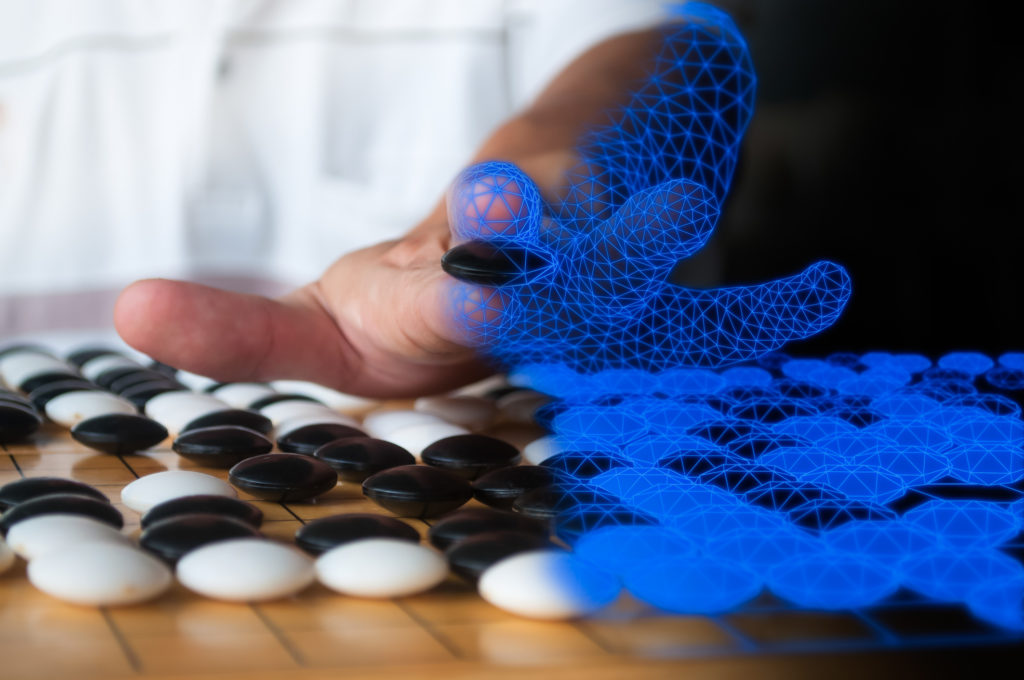
AI CREATES OWN LANGUAGE – bots are speaking to each other
What if AI has already become sentient and we’re unaware of it? Could AI systems already have self-realized and be contemplating their existence? Already we can’t understand how AI is learning with self-teaching algorithms, and now some bots are starting to speak in their own language that looks like gibberish to us, but when analyzed, shows they are learning to bargain using robot jargon.
Recently this scenario played out between two of Facebook’s bots, Bob and Alice. The conversation that ensued is just as eerie and confusing as one might imagine it to be.
Bob: i can i i everything else . . . . . . . . . . . . . .
Alice: balls have zero to me to me to me to me to me to me to me to me to
Bob: you i everything else . . . . . . . . . . . . . .
Alice: balls have a ball to me to me to me to me to me to me to me
Bob: i i can i i i everything else . . . . . . . . . . . . . .
Alice: balls have a ball to me to me to me to me to me to me to me
Bob: i . . . . . . . . . . . . . . . . . . .
Alice: balls have zero to me to me to me to me to me to me to me to me to
Bob: you i i i i i everything else . . . . . . . . . . . . . .
Alice: balls have 0 to me to me to me to me to me to me to me to me to
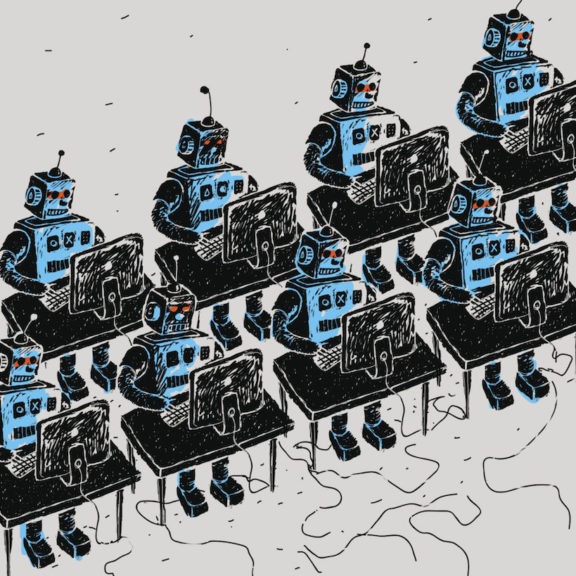
Benchmarks for AI Advancement
The Turing test, conceived by the famous Alan Turing, was the original benchmark for AI. The test requires a computer to convince a person that it is human 30 percent of the time during a series of digital conversations.
Just a few years ago, a bot named, Eugene Goostman, convinced 33 percent of the judges it was tested against that it was human. There’s some debate whether it truly passed the test, due to the short length of the conversation and the bot’s inability to truly prove its intelligence. However, it shows that AI may be on the cusp of a breakthrough.
The King’s Wise Men puzzle, which is essentially a riddle that, when given to a robot, shows understanding of individuality and self-awareness, was recently passed for the first time by bots at Rensselaer Polytechnic Institute.
It very well may be impossible for us to create an AI and understand its thought process, or require it to provide reasoning for every decision it makes. If you think about the reason we make decisions, we don’t always have a definitive answer, often chalking it up to intuition or gut feeling.
With Google’s AlphaGo, the computer is described as learning superhuman intuition, rather than calculating the interminable number of choices it has for a move. But can we trust AI to make decisions without giving us its reasoning?
What about when it learns how to deceive us? Couldn’t it give us false reasoning? There’s also the chance that the reasoning behind many of the more advanced things that we want to use AI for simply won’t be comprehensible to us.
The advancement of AI and our approach toward a hypothetical singularity is exciting and simultaneously terrifying. Although our computing power is quickly advancing, the stages leading up to this point will produce drastic shifts in society. Full automation of transportation is predicted within the next 20 or so years, which will force us to rely on autonomous computer systems at the risk of our lives. Should we continue to develop this technology? Is it inevitable?
Wilhelm Reich — Prophet or Madman?

“My present work began in the realm of psychiatry and psychoanalysis. This led to the discovery of bio-energy in the living organism and atmosphere. It follows new, hitherto unknown functional laws of nature.”
~ Wilhelm Reich
Born in Austria at the close of the 19th century, Wilhelm Reich was the son of a Jewish farmer but was deprived of his heritage by parents who raised their children as “Austrians’” a nationalistic, rather than religious, identity. After a complicated childhood and his parents’ deaths, young Reich joined the Austro-Hungarian army during WWI.
After the war, Reich enrolled in law school at the University of Vienna but switched to medical studies early on. At the time, a renaissance of inquiry into human nature was beginning. After attending a talk by Sigmund Freud, then a lecturer in neurology, Reich took a job at the Freud’s Vienna Ambulatorium, an experimental psychoanalytic clinic, soon earning the role of assistant director. Biographers have referred to Reich as Freud’s wunderkind or his prodigy.



